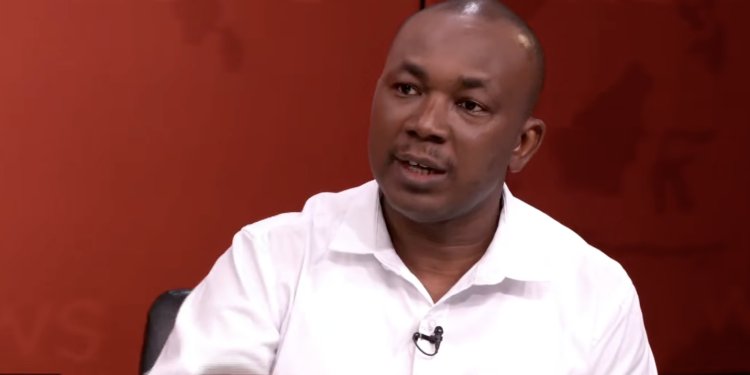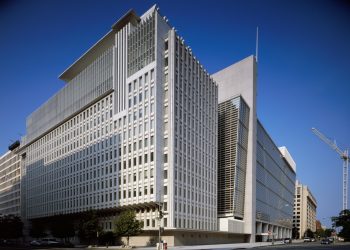
Professor of Finance and Economics at the University of Ghana has backed the International Monetary Fund’s (IMF) recommendation for the Bank of Ghana to scale down its foreign exchange market interventions, warning that continued control by the central bank is distorting price signals and fuelling black market activity.
Speaking on Joy FM’s Super Morning Show on Wednesday, July 9, Professor Godfred Bokpin said the central bank’s role as a dominant player in the market is undermining market-led price discovery.
“One of the important functions of the market is what we call price discovery, and that comes about when you allow the forces of demand and supply, both from the demand side and supply side to arrive at a price that reflects the true dynamics of the market,” Prof Bokpin explained.
He cautioned that the Bank of Ghana’s heavy-handed approach in managing the exchange rate was sending the wrong signals to market players.
“At the moment, the central bank, being a regulator, is also a dominant player in the market. To a large extent, it has the upper hand in terms of control of FX and how that FX is spilled over onto the market,” he said.
“So, to that extent, the price signalling effect will come all from the central bank rather than the market playing its discovery role, and that is what we are seeing here.”
[embedded content]Prof Bokpin warned that such dominance creates confusion among market participants about the true value of the cedi, Ghana’s local currency.
“Market participants may have the impression that the true rate is not really the official rate, which is influenced to a large extent by the central bank. They wouldn’t want to transact with that particular rate,” he said.
According to Prof Bokpin, discrepancies between various exchange rates in the country are widening, leading to inefficiencies. He cited current data to demonstrate the spread between rates.
“If you want to sell U.S. dollars at the bank level, you are likely to get maybe around 10.1, some are even doing 9.8. However, if you look at other layers of the market the forex bureaux the price differential is working up to almost 20 percent. In some instances, we looked at data that showed a gap close to 25% . Compared to the black market, the spread is getting close to 35%,” he said.
He noted that such a structure creates multiple exchange rates, with transactions increasingly happening outside the official corridor.
“You are operating a system where there are multiple rates,” he explained. “You then have the official rates sitting with the Bank of Ghana, but the transaction rate will be outside the corridor. And when you do that consistently, you are actually fuelling the development of the black market rather than roping in the transactions within the formal financial system.”
Professor Bokpin urged policymakers to allow the natural inflow and outflow of foreign currency to influence pricing, saying the weight of supply should come from the broader market rather than just the central bank.
“If you compare the multiple entries in terms of supply of FX into the market and you compare that to the intervention of the central bank, the weight of the intervention is more on the side of the central bank. But we should allow the tripling in from the forces of demand and supply to settle the real exchange rate,” he said.
DISCLAIMER: The Views, Comments, Opinions, Contributions and Statements made by Readers and Contributors on this platform do not necessarily represent the views or policy of Multimedia Group Limited.
DISCLAIMER: The Views, Comments, Opinions, Contributions and Statements made by Readers and Contributors on this platform do not necessarily represent the views or policy of Multimedia Group Limited.
- President Commissions 36.5 Million Dollars Hospital In The Tain District
- You Will Not Go Free For Killing An Hard Working MP – Akufo-Addo To MP’s Killer
- I Will Lead You To Victory – Ato Forson Assures NDC Supporters
Visit Our Social Media for More




